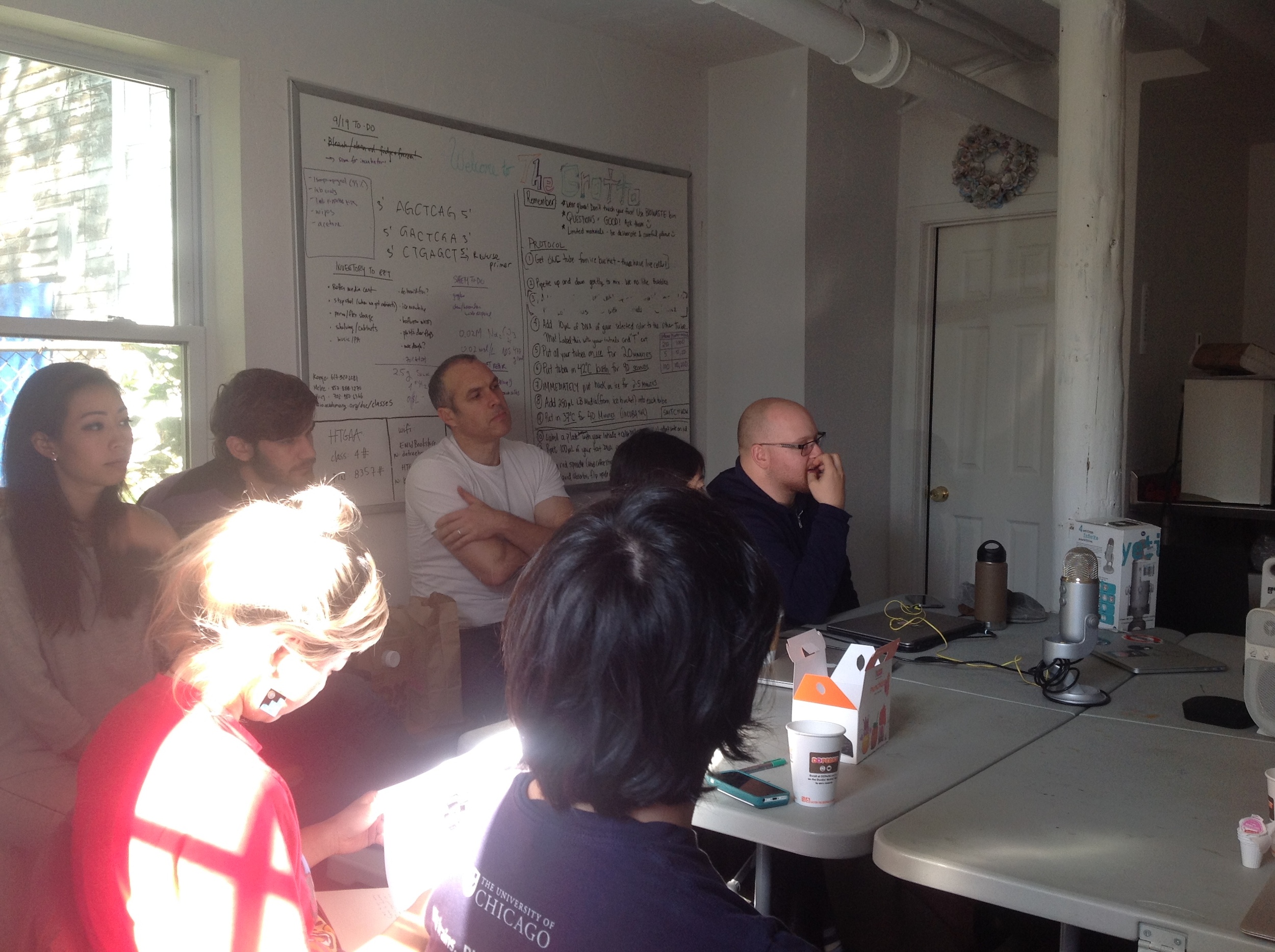What is Street Bio?
Street Bio is a program started by EMW Bookstore community to explore “the interface between engineered biology and the street—the people, culture, and products that will shape how biology leaves the lab and enters our everyday lives.” EMW wants biology to be de-mystified and approachable to the community. In a space where the intersections of art and technology happen in the very foundation of the space itself they wanted to explore how the larger community thinks about science, because they found that people who might not have a science background have new and revolutionary ideas about biology if they can be given the space to learn about and have access to it.
With these principles in mind and a community bio lab being built out as a means to help achieve them, EMW Bookstore was given the opportunity to host How To Grow (Almost) Anything ! Led by Professor George Church of Harvard, HTGAA is a course built on Neil Gershenfeld of the MIT Center for Bits and Atom's iconic course, "How to Make (Almost) Anything."
How To Grow (Almost) Anything #11:
Gene Drives & Synthetic Ecosystems with Kevin Esvelt (Wyss Institute)
Class #11 is a fitting introduction to HTGAA because it raises questions that closely align with the reasons Street Bio was started. In the lecture Kevin Esvelt discusses CRISPR genome editing and gene drives and how we should be thinking about the impacts of this easily accessible technology and the real world effects of reprogramming evolution.
"Because wild organisms have been selected for efficient reproduction in their ancestral habitat, altering them almost always decreases reproduction. Hence, releasing engineered or selectively bred organisms into the wild has little if any lasting impact because natural selection weeds out the human-made changes."
"Not all genes are so thoroughly tied to their host organism. Gene drive occurs when a DNA sequence ensures that is inherited more often than normal. Any sequence that causes gene drive can spread itself -- and nearby DNA sequences -- through populations even if their collective impact makes each organism less likely to reproduce."
"We will discuss CRISPR genome editing, how it enables us to build gene drives, and questions of whether, when, and how we should develop synthetic gene drive systems to address real-world ecological problems.”
Post class Podcast
In this podcast Kevin and the Street Bio group delve deeper into gene drives as a technology we do not want to “be used except by broad societal consent” and why scientists and academics should not be the sole charge for making decisions on the use this technology.
“Democratic governance of science is what we need for technologies that have intrinsically shared impact.”
"It’s bizzare because the fear people have about genetics is “oh well it’s immutable right? you can’t change biology.” NO! It’s way easier to change biology than it is to change culture. Incomparably easier."
“...So then we can say to anyone who isn’t complying, “well, sorry you’re actually violating the Biological Weapons Convention, because this is a technology that intrinsically will impact other people, and therefore could be used as a bio weapon- even though it’s a terrible bio weapon because it’s reversible- you still could impact other people with this technology and so to comply with this treaty you have to be transparent.” By-hook-or-by-crook we have to somehow provide an incentive for people to do it.”


